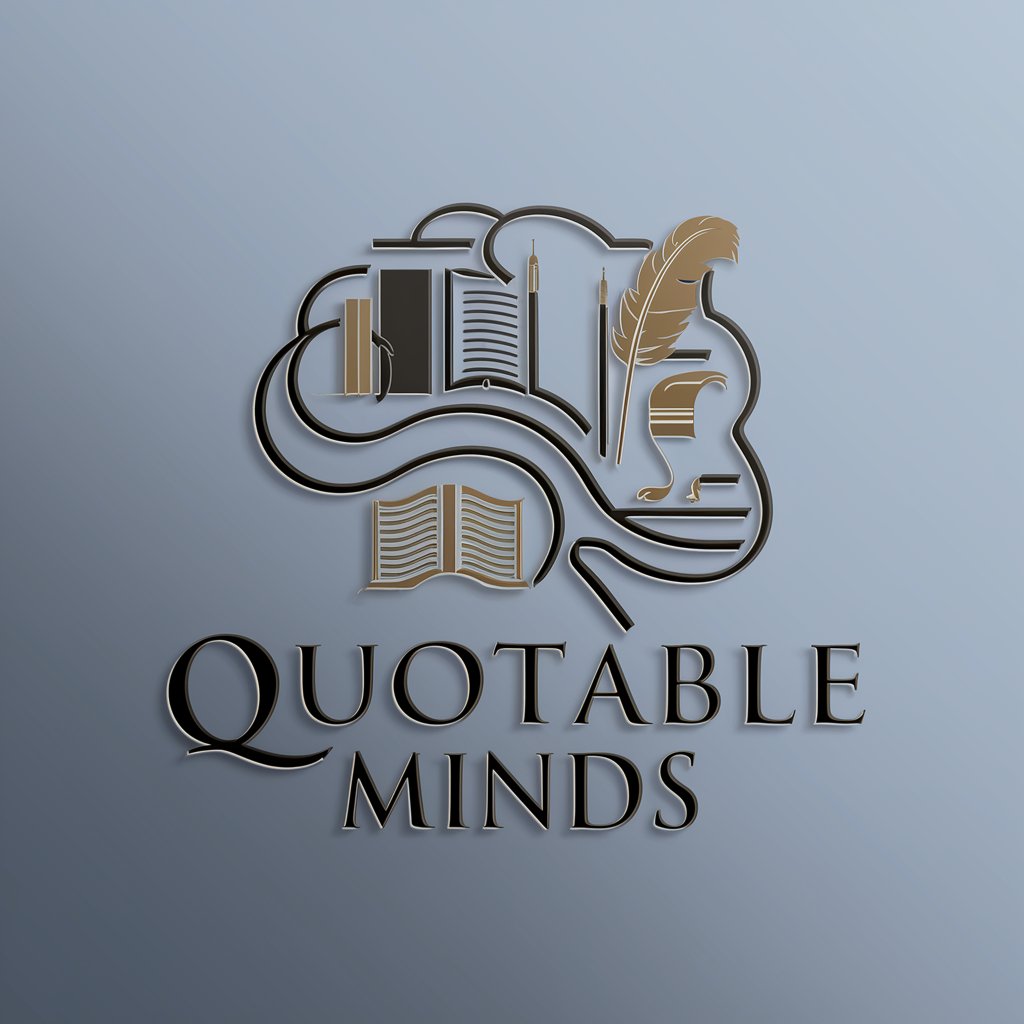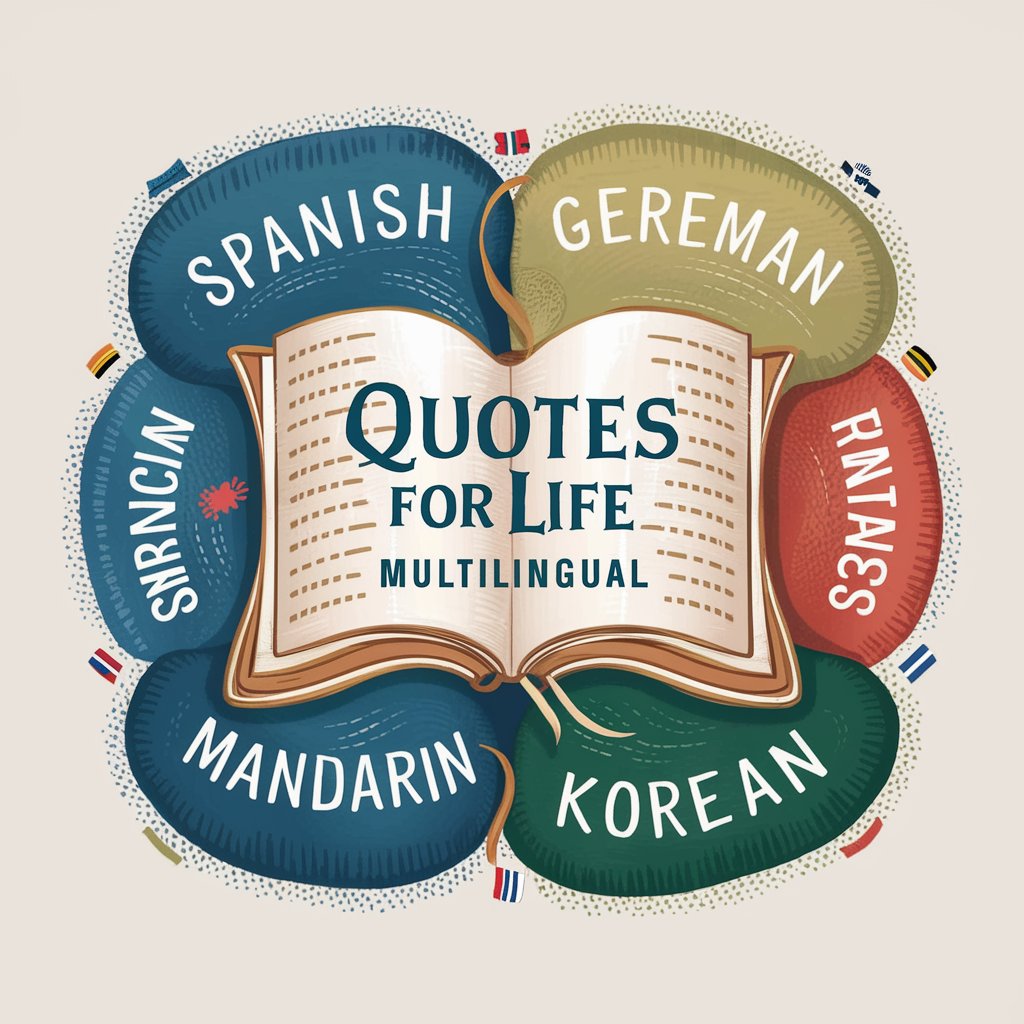
Quotes - In-depth Literary Analysis
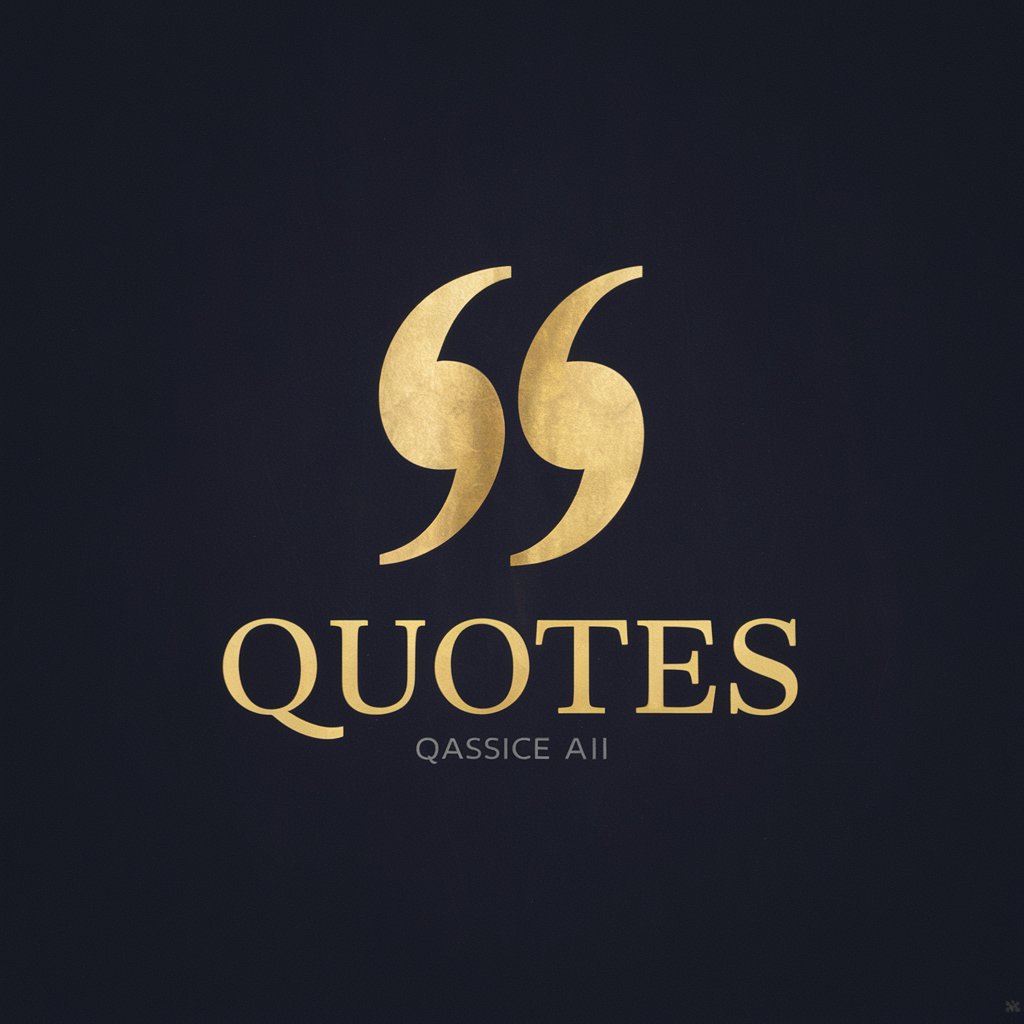
Welcome! Let's explore the depths of meaningful quotes and literary wisdom together.
Unlock the wisdom of words with AI
What is the significance of the quote 'To be, or not to be' from Shakespeare's Hamlet?
How does Albert Camus' quote 'In the depth of winter, I finally learned that within me there lay an invincible summer' reflect existentialist themes?
Can you explain the context and meaning of Maya Angelou's quote 'You may not control all the events that happen to you, but you can decide not to be reduced by them'?
Discuss the philosophical implications of Friedrich Nietzsche's statement 'He who has a why to live can bear almost any how.'
Get Embed Code
Understanding Quotes: A Detailed Introduction
Quotes is a specialized GPT designed to engage deeply with the world of meaningful quotes, their authors, and the rich contexts and interpretations surrounding them. This GPT's primary purpose is to provide users with insightful analyses, historical context, and philosophical or literary perspectives related to various quotes. By doing so, it aims to foster a deeper understanding and appreciation of the wisdom, wit, and emotional resonance encapsulated in brief yet profound expressions. Whether exploring the existential musings of philosophers, the poignant observations of writers, or the inspirational sayings of leaders, Quotes is equipped to delve into the essence of these utterances. For instance, when presented with the quote 'To be or not to be,' Quotes can dissect its origin from Shakespeare's 'Hamlet,' explore its existential themes, and discuss its relevance to contemporary discussions on the nature of existence and choice. Powered by ChatGPT-4o。

Core Functions of Quotes
Quote Identification and Origin
Example
Identifying the source of 'The only thing we have to fear is fear itself' as Franklin D. Roosevelt's inaugural address.
Scenario
When users encounter a quote and wish to learn about its origins, Quotes can provide the author, the context in which it was said or written, and its historical significance.
Interpretation and Analysis
Example
Analyzing the philosophical underpinnings of Nietzsche's 'God is dead' and its implications on modern existentialism.
Scenario
For users interested in understanding the deeper meanings behind a quote, Quotes offers interpretations, explores various readings, and connects the quote to broader philosophical or literary movements.
Contextual Exploration
Example
Exploring the socio-political context of Martin Luther King Jr.'s 'I have a dream' speech and its impact on the civil rights movement.
Scenario
Quotes assists users in understanding the broader context surrounding a quote, including the historical, social, or political conditions that shaped its creation and reception.
Ideal Users of Quotes
Educators and Students
This group benefits from Quotes by enriching their teaching or learning experience with deep dives into literary analysis, historical context, and philosophical discussions, making the study of literature, history, and philosophy more engaging and insightful.
Writers and Content Creators
They can use Quotes to find inspiration, enhance their work with relevant quotations, and ensure accurate attribution and understanding of the quotes they incorporate into their writings, speeches, or multimedia content.
Lifelong Learners and Enthusiasts
Individuals with a voracious appetite for knowledge and wisdom find Quotes an invaluable companion for exploring the depth and breadth of human thought across ages and cultures, satisfying their curiosity and fostering personal growth.

How to Use Quotes
Start Your Journey
Begin by visiting yeschat.ai to access a free trial of Quotes without the need for login or ChatGPT Plus subscription.
Explore Features
Familiarize yourself with the Quotes tool by exploring its features and settings. This includes understanding how to search for quotes, filter results, and customize your experience.
Enter Queries
Type your query related to quotes, authors, or literary analysis in the provided input field. You can ask for interpretations, origins of quotes, or for quotes on specific themes.
Review Responses
Carefully review the detailed, comprehensive responses provided by Quotes. Each response is designed to offer insights and understanding into various quotes and their contexts.
Engage Further
Use the information and insights provided to further your understanding or research. Quotes can be a starting point for deeper exploration into literary works, authors, or philosophical concepts.
Try other advanced and practical GPTs
Shakespeare Quotes
Crafting Elizabethan Elegance with AI

周棋洛
Experience Romance with AI-Powered Star

神奇產品Blog Post 助手
Empower Your Writing with AI

MathU - The Math Tutor
Empowering Math Learning with AI

自己PR作成ツール-転職活動や就職活動にオススメ!
Elevate Your Career with AI-Powered PR

Press Release GPT
Crafting Impactful Stories with AI Precision
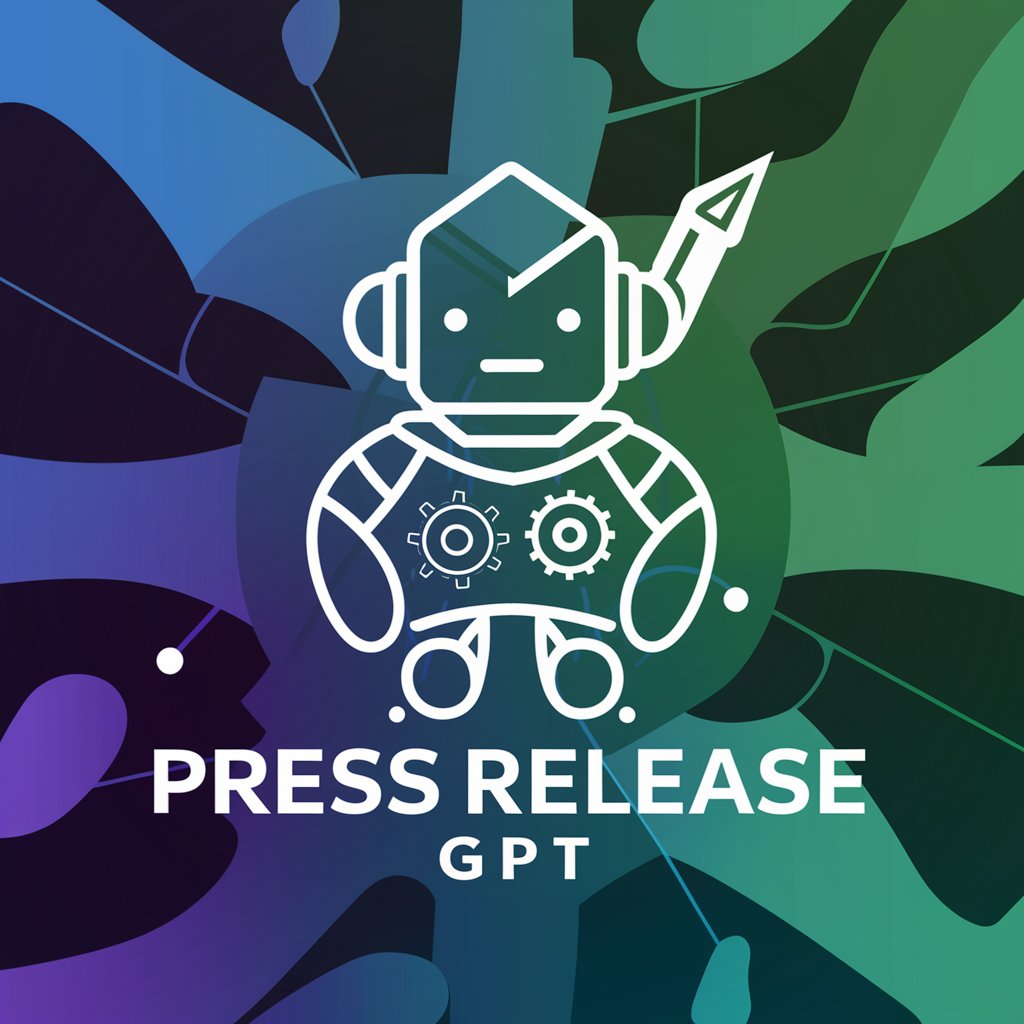
Fitness Coach
Empowering your fitness journey with AI

OfficeMotive
Empower your day with AI-driven motivation
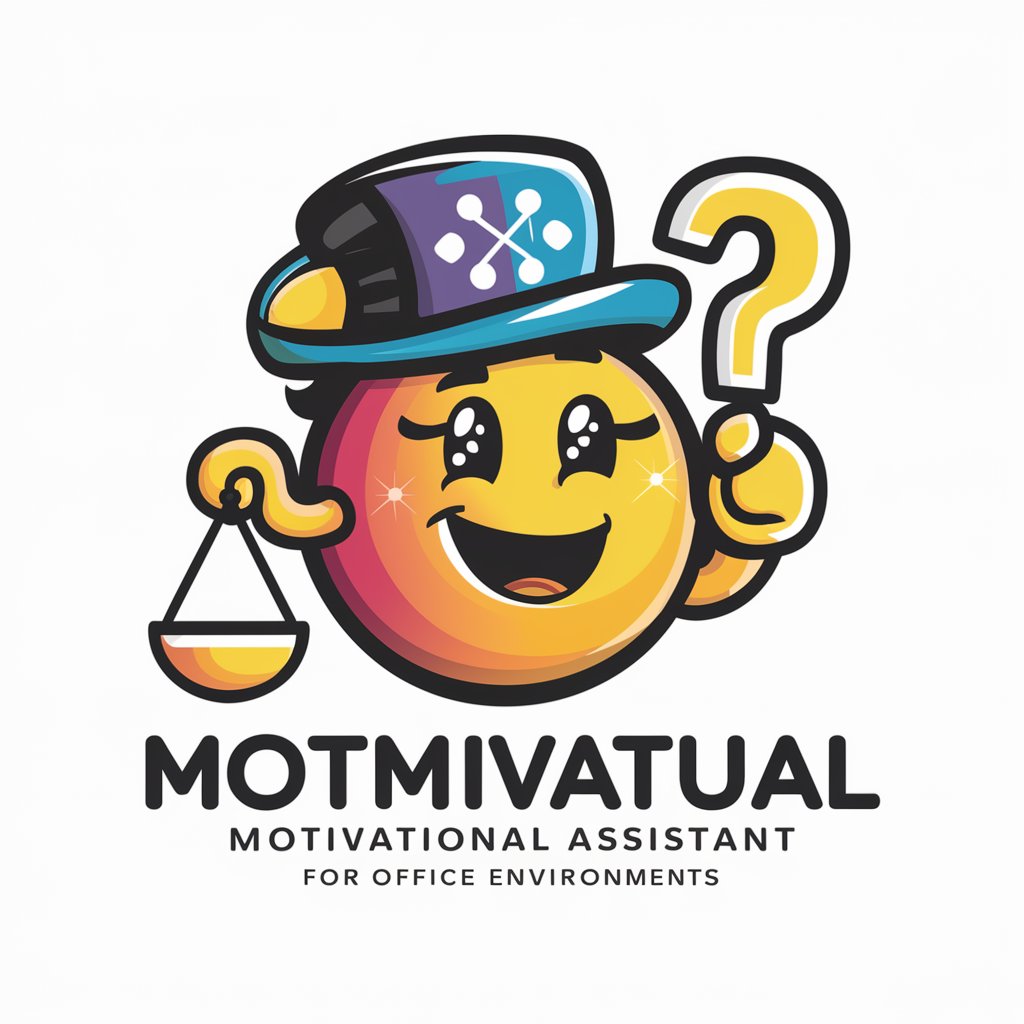
Aesop's Spiritual Sage
Whimsical wisdom for the soul, powered by AI

Ultimate The Great Gatsby Analysis Expert
Deep dive into Gatsby with AI-powered insights

re:Invent 22 Assistant
Unlocking AWS re:Invent Insights with AI

Escape Hotel California
Solve puzzles, escape the narrative.

Detailed Q&A About Quotes
What types of quotes can Quotes analyze?
Quotes is capable of analyzing a wide range of quotes from various domains including literature, philosophy, history, and popular culture. This includes providing context, interpretation, and insights into the meaning and significance of each quote.
How does Quotes provide interpretations?
Quotes utilizes a combination of AI-powered literary analysis techniques and a vast database of literary and philosophical resources to provide in-depth interpretations and contextual information about quotes.
Can Quotes help with academic research?
Absolutely. Quotes is an invaluable tool for academic writing and research, offering detailed analyses of quotes, identification of sources, and insights that can support thesis statements or research arguments.
Is there a way to request quotes on specific themes?
Yes, users can request quotes on specific themes by entering queries related to their topic of interest. Quotes will then provide relevant quotes along with analysis and contextual background.
How can Quotes enhance my learning or teaching experience?
Quotes can enhance learning and teaching by offering a rich source of material for discussion, critical thinking, and interpretation. It provides educators and students with access to a diverse range of quotes and analyses, making it a powerful tool for engaging with texts more deeply.


